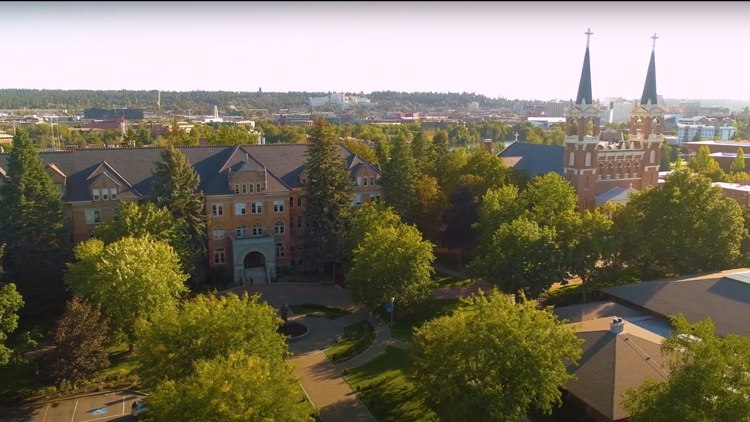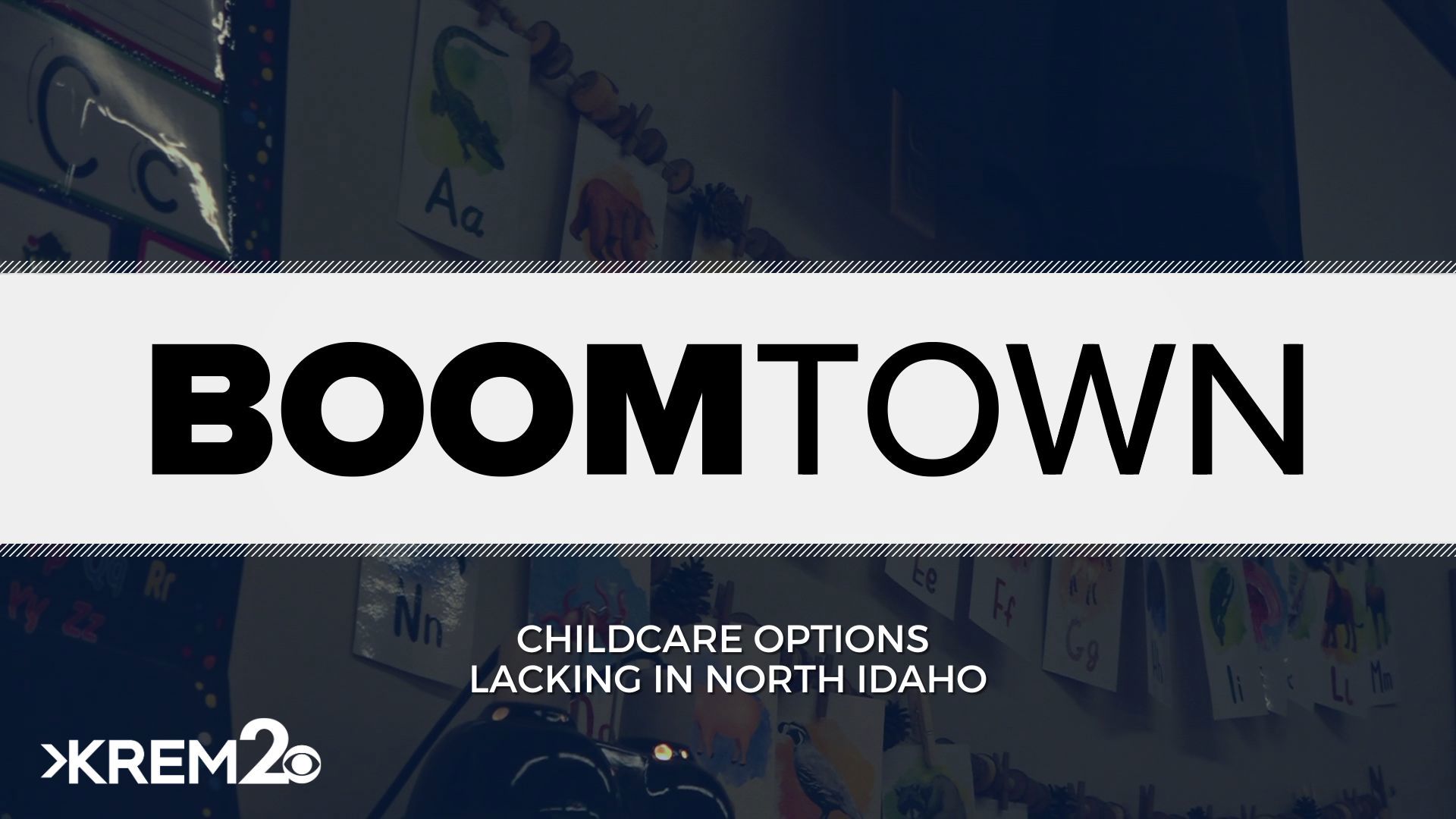SEATTLE — Gonzaga University's Institute for Climate, Water, and the Environment has just been awarded $19,904,367 to support projects that focus on reducing pollution, increasing community climate resilience, and spreading the word about environmental and climate justice challenges within the Spokane community.
According to a press release, the funding was delivered through the EPA's Environment and Climate Justice Community Change Grants Program and the Inflation Reduction Act.
The Gonzaga Institute for Climate, Water, and the Environment and Spokane Neighborhood Action Partners (SNAP) will work with disadvantaged communities to reduce indoor air pollution and energy costs by retrofitting 300 low-income homes with heat pumps and high-quality air filtration systems.
According to the release, they will build the capacity of five community resilience hubs by installing microgrid infrastructure, which will help establish the Spokane Community Resilience Network and expand participation in the Gonzaga climate planning certificate program.
They will also establish a fund that will be able to support community organizations' work to strengthen Spokane's climate resilience and mitigate local pollution.
The City of Spokane's $8 million portion will jumpstart the formation of solar arrays and backup batteries at four community centers so they can function "off-grid" to provide shelter to those who need to get away during weather-impact days.
The Carl Maxey Center, a Black-led community center in Spokane, will use its $900,000 allocation to upgrade its building, as well as install a solar array and batter backup, to join the city buildings as a resilience hub.
The $19.9 million grant is the largest federal grant in Gonzaga's history, and it is also the largest investment in climate resilience for Spokane.
“We’re proud to announce the first round of Community Change grant selections to support environmental justice and more equitable communities,” said EPA Regional Administrator Casey Sixkiller. “This funding from the Biden-Harris Administration’s Inflation Reduction Act will help mitigate impacts from wildfire smoke and heat events, and improve energy efficiency. By funding these community-driven solutions, we are supporting local environmental priorities that will make a meaningful difference in supporting public health and environmental quality.”
“Through this grant, we are not only addressing immediate environmental challenges but also building a sustainable, resilient future for our community,” said Dr. Thayne McCulloh, President of Gonzaga University. “This is a perfect example of where Gonzaga and higher education excel, making a profound impact on a community’s quality of life with the research, execution and implementation of real solutions for our citizens today while training the next generation of problem-solvers of tomorrow.”
“All communities, no matter their income, deserve to have clean air and clean water, and they deserve to have the necessary resources to make their homes more climate resilient,” said Senator Patty Murray. “The $20 million going to the Gonzaga Institute for Climate, Water, and the Environment and Spokane Neighborhood Action Partners (SNAP)—made possible by the Inflation Reduction Act—is exactly the kind of support and resources our local partners need to cut down on pollution and make sure our communities are climate ready.”
“This award is an important achievement for our city as we work to mitigate the effects of climate change,” said Spokane Mayor Lisa Brown. “The Spokane Climate Resilience Project will help our most vulnerable families and neighborhoods be more healthy and resilient. I applaud our partners, especially Gonzaga University, for leading in securing this award.”
EPA will continue to review applications and announce their selections on a rolling basis. They encourage all applicants to submit applications as soon as they meet all the proper requirements within the program. EPA also encourages everyone to apply for technical assistance as soon as possible, since the last day to request new technical assistance is August 16.
To learn more about the Community Change Grants and Technical Assistance, you can click here.



